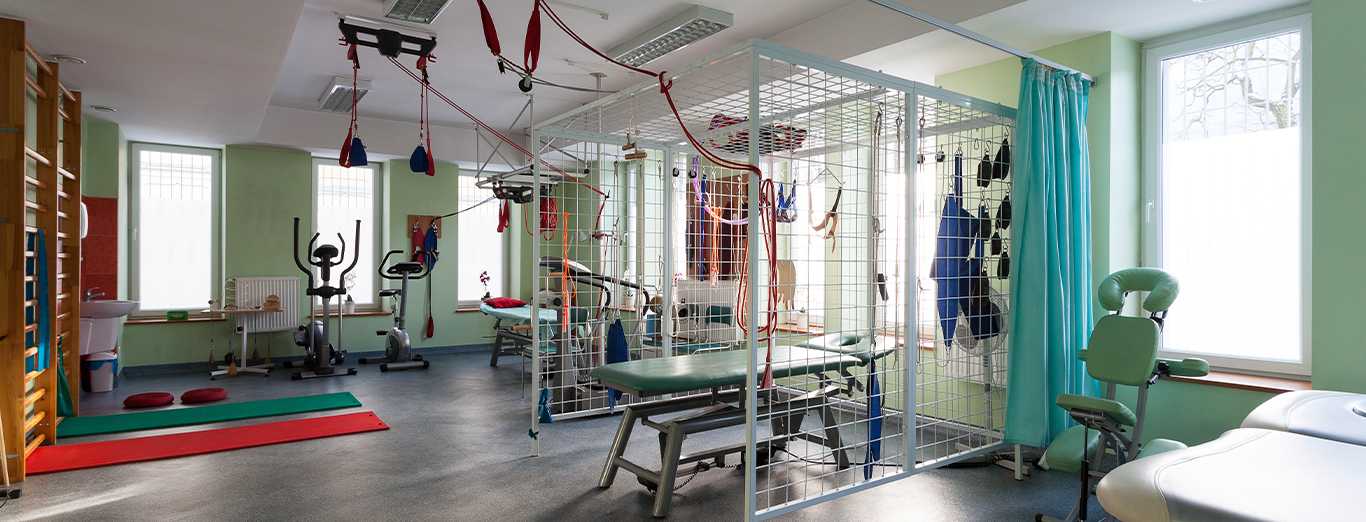
Expert Physiotherapy at Home
Certified physiotherapists visit you at home to provide focused, one-on-one care tailored to your needs. With no travel or waiting rooms, recovery happens in a setting that is comfortable, familiar, and built around your convenience.
Personalised Recovery Programmes
Every treatment plan is designed to suit your condition, goals, and pace. Our physiotherapists follow structured, evolving protocols to ensure consistent progress, with each session aligned to deliver meaningful results.
Trusted Physiotherapists. Real Results.
Our team comprises experienced, background-verified physiotherapists trusted by thousands of families. With a strong focus on safety, reliability, and clinical outcomes, we make recovery at home both effective and reassuring
Patient Testimonials
Portea Physiotherapists for Home Visits
Meet some of our experienced and dedicated healthcare professionals

Dr. Lokesh G
Physiotherapist
Specializations
Experienced in Neurological rehabilitation, Orthopaedic physiotherapy, and Paediatric care
Delivers structured, high-impact treatment plans across neuro, ortho, and paediatrics—ensuring safety, comfort, and measurable recovery at every stage.

Dr. Mohammed Sarwar
Physiotherapist
Specializations
Experienced in Neurological rehabilitation, Adult physiotherapy, and Paediatric care
Combines deep clinical expertise with a compassionate approach, supporting both adults and children through neuro and physical rehabilitation that promotes long-term independence and recovery.

Dr. Nelapati Divya
Physiotherapist
Specializations
Skilled in Orthopaedic rehabilitation, Manual therapy techniques, and Paediatric physiotherapy
Brings a personalised, hands-on approach to healing—combining structural expertise with paediatric sensitivity to restore movement, relieve pain, and improve everyday function.

Dr. Naveen V
Physiotherapist
Specializations
Trained in Pain management, Cardiac and Orthopaedic rehabilitation, Neurological care, and Neural tissue mobilisation
Brings clinical precision and empathy together—designing science-backed recovery protocols for pain relief, nerve mobilisation, and cardio-neuro-ortho rehabilitation across all age groups

Dr. Miloni Savla
Physiotherapist
Specializations
Holds an MPT in Orthopaedics with a focus on Musculoskeletal rehabilitation and strength recovery
Delivers focused, movement-oriented therapy grounded in orthopaedic science—helping patients rebuild strength, restore function, and return to daily life with confidence

popular physiotherapy equipment and their benefits in 2025
Physiotherapy equipment is selected based on individual treatment goals—be it pain relief, improved mobility, muscle stimulation, or post-surgical recovery. Below are the most commonly used equipment types in 2025 and how they contribute to better outcomes:
1. Mobility Equipment
Designed for individuals facing difficulty walking or performing daily activities, mobility aids help:
- Strengthen muscles
- Improve joint flexibility
- Enhance balance and coordination
- Promote independence and freedom
Common types include:
- Walking Canes: Quad canes, forearm canes, white canes
- Crutches: Axillary, platform, forearm crutches
- Walkers: Rollators, knee-walkers
- Wheelchairs
- Mobility Scooters
2. Electrical Muscle Stimulation (EMS) Equipment
Ideal for patients with severely weakened muscles due to injury, stroke, or spinal conditions. EMS supports:
- Muscle strength recovery
- Prevention of atrophy
- Muscle re-education
- Pain relief and spasm control
Key EMS types:
- TENS (Transcutaneous Electrical Nerve Stimulation): Blocks pain signals to the brain
- Russian Current: Increases muscle strength
- Interferential Current: Effective for acute and chronic pain
- Bi-phasic Currents: Improves blood flow and reduces swelling
3. Hot and Cold Therapy Equipment
Recommended for arthritis, injuries, or limited mobility, these therapies:
- Reduce muscle inflammation
- Ease joint stiffness
- Minimize swelling and pain
- Speed up post-operative recovery
Examples include:
- Hot/cold wraps and pads
- Standing and sitting whirlpools
- Paraffin wax baths
- Heating belts and straps
4. Massage Therapy Equipment
Massage tools are highly beneficial for stress, muscle tension, and joint stiffness. They aid in:
- Stress reduction
- Enhanced flexibility
- Faster recovery from soft tissue injuries
- Improved circulation
Popular massage equipment:
- Massage tables and chairs
- Deep tissue massagers
- Trigger point tools
5. Ultrasound Therapy Equipment
Using sound waves, ultrasound therapy accelerates healing in tissues affected by injury or chronic strain. Benefits include:
- Muscle repair and relaxation
- Increased blood flow
- Pain relief
- Reduced inflammation
why using the right equipment matters
Using proper physiotherapy tools helps:
- Maximize treatment outcomes
- Improve independence in daily activities
- Speed up recovery and healing
- Support long-term well-being
- Minimize risk of reinjury
portea: your trusted partner for physiotherapy equipment
Benefits You Get with Portea:
- Affordable rentals or purchase options, tailored to your treatment needs
- A wide catalog of orthopedic, massage, mobility, and electrotherapy equipment
- Doorstep delivery and easy ordering via phone or email
- Flexible rental plans, including short- and long-term options
- Latest equipment updated regularly for best-in-class care
- Expert physiotherapists to guide you in using the equipment correctly
- Dedicated support team for equipment setup, servicing, and maintenance
how can portea help you?
Portea’s innovative approach to in-home healthcare bridges the gap between clinical expertise and patient comfort. Our care solutions—developed with insights from top healthcare experts—are designed for elderly patients, those recovering from surgeries, or individuals with chronic illnesses or disabilities.
By simplifying access to physiotherapy equipment, we ensure that more people can receive effective rehabilitation and pain relief at home.
With Portea, you get:
- Physiotherapy at Home: Convenient, one-on-one sessions from certified professionals.
- Online Physiotherapy: Access expert care from the comfort of your home—ideal for busy schedules or remote areas.
- Doctor consultations
- Nursing care
- Medical equipment rentals and sales
- Trained caregivers
faqs
1. What are the most common physiotherapy equipment used in clinics?
Clinics typically utilize equipment like resistance bands, exercise balls, balance boards, foam rollers, and TENS units. These tools aid in strengthening, flexibility, and pain management. For personalized home rehabilitation, consider consulting a certified physiotherapist.
2. Can I use physiotherapy equipment at home?
Yes, many physiotherapy tools such as resistance bands, foam rollers, and exercise balls are suitable for home use. It’s essential to receive guidance from a professional to ensure proper technique and prevent injury.
3. What is the role of resistance bands in physiotherapy?
Resistance bands are versatile tools that help in strengthening muscles, improving flexibility, and enhancing mobility. They are especially beneficial for home physiotherapy exercises due to their portability and ease of use
4. How do I choose the right physiotherapy equipment for home use?
Selecting the appropriate equipment depends on your specific rehabilitation needs. Consulting with a physiotherapist can help determine the most suitable tools, such as resistance bands, foam rollers, or balance boards, tailored to your condition.
5. Are there any safety precautions when using physiotherapy equipment at home?
Absolutely. It’s crucial to follow the instructions provided by your physiotherapist and the equipment manufacturer. Start with low resistance and gradually increase intensity. Ensure the exercise area is clear to prevent accidents.
6. Where can I purchase quality physiotherapy equipment for home use?
Reputable suppliers offer a range of physiotherapy equipment suitable for home use. It’s advisable to purchase from trusted sources to ensure product quality and effectiveness. Always consult with a physiotherapist before making a purchase to ensure the equipment meets your rehabilitation needs.
References
Doctor Consultation
Nursing
Physiotherapy
Trained Attendant
Elder Care
Mother & Baby Care
Lab Tests
Medical Equipment
Speciality Pharma
Critical Care





